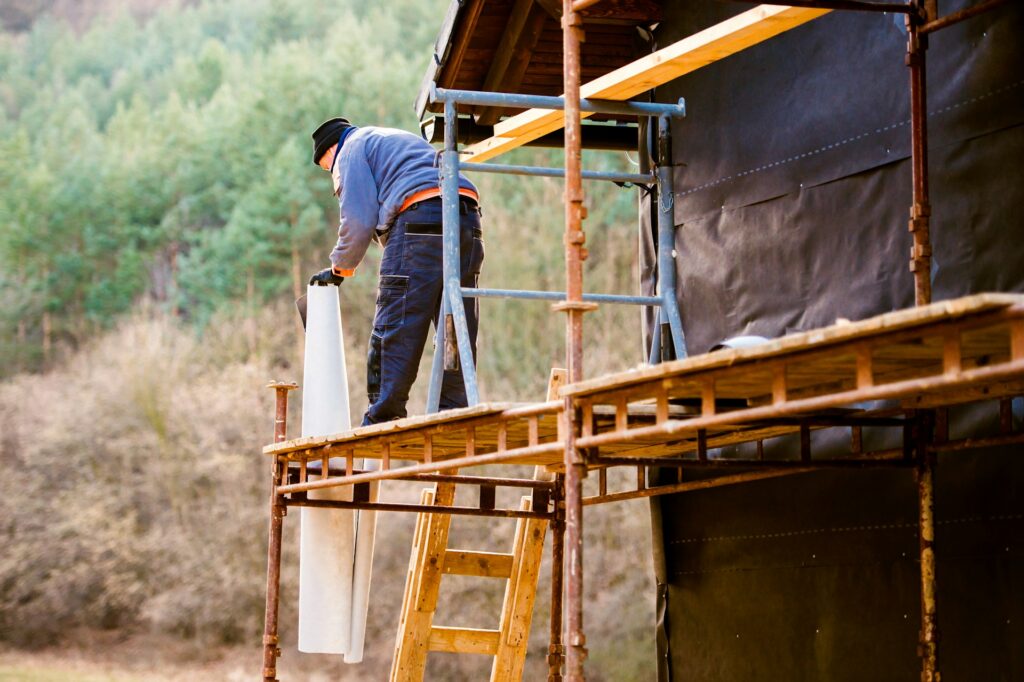When it comes to insulating your West Palm Beach & Palm Beach County home’s attic, selecting the right type of insulation is crucial for ensuring optimal energy efficiency, comfort, and cost savings. With various options available, it’s essential to understand each insulation type’s pros, cons, and best uses to make an informed decision that best suits your specific needs and local conditions. In this article, we aim to educate homeowners on the different types of attic insulation, helping you make a more confident choice for your insulation project.
We will cover popular insulation materials such as fiberglass, cellulose, and spray foam, diving into each material’s characteristics, advantages, and drawbacks. Additionally, we will examine installation techniques and provide guidance on how to determine the ideal insulation type for your home, factoring in aspects such as climate, budget, and existing insulation. With a comprehensive understanding of attic insulation options, you can make a more informed choice for your West Palm Beach & Palm Beach County home, enhancing its energy efficiency and overall comfort.
Fiberglass Insulation: Versatile and Affordable
Fiberglass insulation is one of the most widely used and recognized types of attic insulation. It’s made from fine glass fibers and is available in two forms: rolls (or batts) and loose-fill.
Pros:
- Affordable: Fiberglass insulation is generally more cost-effective than other types of insulation.
- Easy to Install: Installing fiberglass rolls or batts can be a simple DIY project or done by a professional.
- Fire-Resistant: Fiberglass is non-combustible, making it a safe option for home insulation.
Cons:
- Lower Insulation Value: Fiberglass has a lower R-value (thermal resistance) per inch compared to other materials like cellulose and spray foam.
- Settles over Time: Loose-fill fiberglass can settle over time, which might reduce its R-value and effectiveness.
- Requires Proper Handling: When installing fiberglass, wearing protective gear is necessary due to the tiny glass fibers that can cause skin irritation or respiratory issues.
Best Uses: Fiberglass insulation is versatile and well-suited for various attic spaces, such as between joists and rafters. It’s most effective in moderate climates where extreme temperatures are less frequent.
Cellulose Insulation: Environmentally Friendly and Effective
Cellulose insulation is made primarily from recycled paper products, making it an eco-friendly option for your attic. It comes in loose-fill form and can be blown into hard-to-reach spaces.
Pros:
- Environmentally Friendly: Cellulose is made from up to 85% recycled materials, reducing its environmental impact.
- Higher R-value: Cellulose insulation has a higher R-value per inch compared to fiberglass, providing better thermal resistance.
- Excellent Air Sealing: Cellulose’s dense and compact nature helps limit air infiltration compared to other materials.
Cons:
- Moisture Sensitivity: Cellulose insulation can absorb moisture, potentially leading to mold growth or reduced insulation effectiveness.
- Settling: Like fiberglass, cellulose insulation can settle over time, decreasing its R-value and performance.
- Professional Installation: Cellulose is typically installed using specialized equipment, making it more challenging for DIY projects.
Best Uses: Cellulose insulation is best for attics requiring better air sealing qualities or those in more extreme climates. Its dense nature is useful in minimizing drafts and heat transfer.
Spray Foam Insulation: Superior R-Value and Air Sealing
Spray foam insulation is a two-component liquid that expands upon contact, creating a rigid or semi-rigid foam that conforms to the space it’s sprayed into. There are two types of spray foam insulation: open-cell and closed-cell.
Pros:
- Higher R-value: Spray foam has the highest R-value per inch among common insulation materials, providing excellent thermal resistance.
- Superior Air Sealing: Spray foam creates an airtight seal, minimizing drafts and air infiltration.
- Mold and Moisture Resistance: Closed-cell spray foam is impermeable to water, reducing the risk of mold growth and water damage.
Cons:
- Cost: Spray foam insulation tends to be more expensive than other insulation types like fiberglass and cellulose.
- Professional Installation: Spray foam requires specialized equipment and skilled technicians, making DIY installation difficult.
- Possible Off-Gassing: Some spray foam products can off-gas volatile organic compounds (VOCs), potentially affecting indoor air quality.
Best uses: Spray foam insulation is well-suited for homes in harsh climates with significant temperature fluctuations. It’s an excellent choice for sealing irregularly shaped or difficult-to-reach spaces in your attic.
Factors to Consider When Choosing Attic Insulation
When selecting the best type of attic insulation for your West Palm Beach & Palm Beach County home, consider the following factors:
- Climate: The local climate plays a significant role in determining the optimal insulation material and R-value for your attic.
- Existing Insulation: Evaluate your attic’s existing insulation to determine if a supplemental or replacement material is needed.
- Budget: Consider the cost of materials and installation, weighing the initial investment against potential energy savings and long-term performance.
- Installation Complexity: Factor in whether the insulation type can be installed as a DIY project or requires professional installation.
By understanding the different types of attic insulation and their pros, cons, and best uses, you can make an informed decision that best suits your specific needs and local conditions. This will help you enhance the energy efficiency, comfort, and overall performance of your West Palm Beach & Palm Beach County home.
Make the Right Insulation Choice with All Thermo
Understanding the various types of attic insulation, their pros and cons, and best uses is paramount for selecting the most suitable insulation for your West Palm Beach & Palm Beach County home. By considering factors like climate, budget, installation complexity, and existing insulation, you can make a more informed choice that ensures optimal energy efficiency, comfort, and performance for your home.
When you’re ready to upgrade your attic insulation, trust the experts at All Thermo. As the highest-rated attic cleaning, insulation removal, air duct replacement, and attic insulation company in West Palm Beach & Palm Beach County, our team is committed to providing exceptional service and top-quality workmanship to help homeowners achieve comfortable, energy-efficient, and healthy living spaces.

